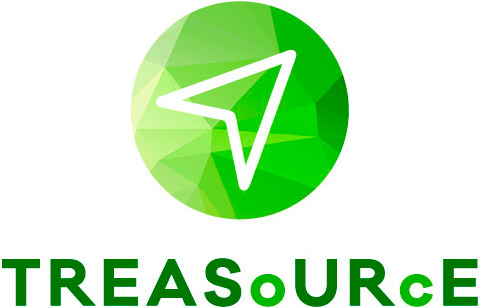Developing and sharing best practices and replicable methods are one of the main objectives in the TREASoURcE project. These targets are equally interesting from the perspective of the circular economy and development needs in Baltic Sea countries, namely Latvia, Lithuania, Germany, and Poland. In the spring of 2023, a series of five events were organized to seek solutions to challenging circular economy needs and pain points. Participants in the events came from different backgrounds and age groups, so the perspectives varied and created a diverse picture of everyday recycling challenges.
Two events were held in Tallinn, organized by FinEst Centre for Smart Cities (TalTech) and Water and Environmental Engineering Research Group of Department of Civil Engineering and Architecture (TalTech) and the City of Tallinn. In Latvia, the event was organized in collaboration with Riga Technical University, and the Lithuanian event was held online with Kaunas University of Technology. In Poland, the workshop was held in June with Innowo, Think To Do Thank, a member of the European Circular Economy Stakeholder Forum, as the local partner.
As part of the event series, Tartu City organized with NGO Paranduskelder an event that explored the establishment of low-threshold repair and refurbishment workshops for city residents. In addition to repairing goods, the goal is to promote social well-being and create opportunities for encounters and experiences of success.
A diverse audience
At the events, various topics from recycling plastics and biobased side streams to battery reuse were discussed, as well as the financing models for the circular economy. The target was to gather information related to the challenges in the specific countries and to explore existing solutions for the identified needs from the partners of the TREASoURcE project. However, the audiences were heterogenous and the discussions focused mostly on the consumer perspective.
Here are a few conclusions and observations from the events. Depending on the event, either all three themes (plastics, biobased side streams and EV batteries) were discussed or the focus was on only one of them.
Dreaming of zero waste future
Participants were asked to imagine the ideal recycling situation in the future and to think about steps to achieve it. The common future goal in all workshops was the most efficient recycling of plastics and biowaste, up to 100 %, and making landfills unnecessary. The difficulty of recycling biomaterials was a common problem for everyone. Streamlining it in everyday life was seen as essential if recycling rates were to be increased and the more efficient use of materials, such as in bioenergy production, was to be promoted. The discussions also highlighted the need to reduce the overall amount of organic waste by addressing food waste generation or reducing consumption in general.
Yes, something has to be done
There was a strong consensus that something needs to be done to increase recycling rates and, eventually, eliminate landfills. At the same time, it was acknowledged that achieving this goal is still far off, especially for ordinary city dwellers, since there is currently no place for all the waste generated at home other than mixed waste. Often, it is a matter of both money and undeveloped recycling methods. Good intentions alone cannot always work; there is a need for an entity that can collect and reuse materials in a profitable way.
At least for now, it may be cheaper for industry to use virgin raw materials compared to recycled materials. Tighter legislation and greater obligations imposed on industry were seen as important and necessary to achieve significant and lasting change. Harmonizing regulations at different levels and in different countries was also seen as a potential goal. Unified rules would enable business operations and the emergence of larger markets around recycling. In addition to the stick and punishment, there is always a need for carrots, like waste fee discounts, which attracts consumers’ behaviour to the right direction.
No experience with EV batteries yet
The reuse of electric vehicle batteries is still very limited, due to both their poor availability and the lack of standards and their cost compared to new batteries for energy storage. There is interest in utilizing batteries for energy storage but, at least for now, handling and use of batteries is not possible for just anyone and there are still many obstacles to solve.
Cooperation continues
The cooperation with the hosting organisations of the workshops continues and the findings will be taken into consideration in the forthcoming TREASoURcE Replication Handbook, where the results and the replicable best practices of the project will be collected. Overall, the common aspiration was to recycle better and more easily, and the stakeholders at different levels need to be involved.
You can download the full D6.1 Workshop report including local CE conditions analysis here.
27.09.2023 | Kaisa Sibelius (Forum Virium Helsinki), kaisa.sibelius@forumvirium.fi
